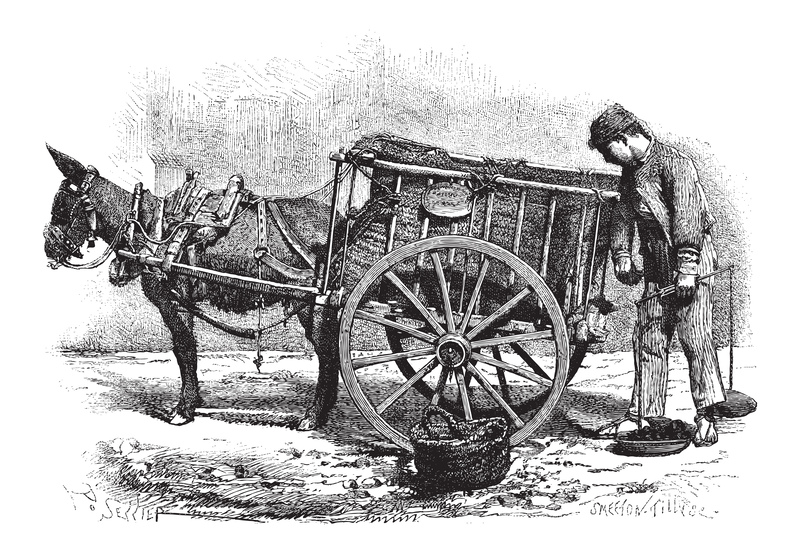How to Protect Nature When Throwing Away Used PPE
The surge in personal protective equipment (PPE) use has been essential for public health. However, as millions of masks, gloves, and face shields are discarded daily, a pressing question emerges: How can we safeguard our environment while disposing of used PPE? This comprehensive guide will show you how to protect nature when throwing away used PPE. We will explore eco-friendly PPE disposal, the impact of misuse, proper handling methods, and innovative alternatives to help readers make responsible choices.
Why Is PPE Disposal a Threat to Nature?
Personal protective equipment such as masks and gloves are generally made of single-use plastics. Most of these materials are non-biodegradable and, if not disposed of properly, can persist in the environment for hundreds of years. Used PPE has already begun to threaten wildlife, clog waterways, and contribute to microplastic pollution. Let's dig deeper into the negative environmental impacts of used PPE.
Environmental Effects of Improper PPE Disposal
- Wildlife Hazards: Animals can mistake PPE for food or become entangled in straps, causing injury or death.
- Waterway Contamination: Rain and wind can carry used masks and gloves into rivers and oceans, adding to the global plastic problem.
- Microplastic Generation: As PPE breaks down, it releases microplastics, which accumulate in food chains and harm ecosystems.
- Landfill Pressure: Massive PPE waste fills up landfills, reducing available space for other types of waste and increasing greenhouse gas emissions.
Protecting nature when throwing away PPE starts with understanding these threats and making deliberate choices to avoid them.

How to Dispose of Used PPE Responsibly
Proper PPE disposal is crucial for both human safety and environmental protection. Here are the steps you can take to make sure your used PPE is discarded in an eco-friendly way:
1. Never Litter Used PPE
- Always place used masks, gloves, and face shields in designated waste bins. Littering not only pollutes the environment, but also endangers sanitation workers and wildlife.
- If a public bin is unavailable, carry a bag to store PPE until you can dispose of it properly.
*Even small actions, like not dropping a mask on the street, help protect nature from plastic waste.*
2. Cut the Straps Before Throwing Away PPE
- Wildlife can get entangled in mask or glove straps. Cutting the straps reduces the risk of harming birds, fish, and mammals.
- Use scissors or simply tear the straps before placing them in the trash.
3. Separate PPE from Recyclables
- Do not place PPE in regular recycling bins. Most municipal recycling facilities cannot process PPE, and contaminated gloves or masks can ruin batches of recyclables.
- Use clearly marked landfill or hazardous waste bins for PPE.
4. Consider Special PPE Disposal Programs
- Some communities and organizations now accept used PPE in special collection boxes to handle the waste safely and potentially recycle it.
- Contact your local waste management authority to inquire about PPE collection points or hazardous waste drop-offs.
5. Use a Sealed Bag for Used PPE
- Place masks and gloves in a sealed plastic or biodegradable bag before putting them in the trash. This helps contain germs and keeps waste compact.
- Following this approach also protects sanitation workers from potential health risks.
How to Safeguard Nature with Eco-Friendly PPE Alternatives
Reducing reliance on single-use plastics is a key step to protect the environment during PPE disposal. Here's how you can minimize your footprint:
Switch to Reusable Masks and Face Shields
- Opt for cloth masks with multiple layers, which can be washed and reused many times.
- Face shields made from durable materials can be disinfected and used repeatedly.
- Reusable PPE options reduce the overall volume of waste, protecting nature from unnecessary plastic.
*Always follow guidelines for cleaning and sanitizing reusable PPE to maintain safety.*
Look for Biodegradable PPE Products
- Some companies now offer masks and gloves crafted from biodegradable materials like corn fiber or bamboo.
- These products break down naturally and pose less threat to ecosystems if they escape into nature.
- Read packaging information and choose eco-labeled options.
Try Upcycled or Compostable PPE
- Compostable masks, made from plant materials, can be disposed of in a home compost (as long as they are labeled safe for composting).
- Some non-profit organizations collect used PPE to upcycle or process them into new products, such as benches or construction materials.
The Role of Communities and Governments in PPE Waste Management
Protecting nature from PPE waste requires both individual responsibility and systemic change. Local governments and communities can step in to provide large-scale solutions:
Implement PPE-Specific Recycling Programs
- Municipal recycling centers can introduce separate bins and collection points for PPE waste to prevent contamination.
- Specialty recyclers, like TerraCycle, are piloting projects to process used masks, gloves, and other items into usable raw materials.
Educate the Public on PPE Disposal
- Public awareness campaigns ensure citizens know how to safely and sustainably dispose of used PPE.
- Schools, healthcare institutions, and workplaces should standardize and promote best practices for PPE handling.
- Easy-to-read infographics and instructions can make a big difference in influencing everyday habits.
Support for Eco-Friendly Innovations
- Grants and incentives can encourage manufacturers to design greener, recyclable PPE.
- Investing in research and development of sustainable PPE materials is instrumental for long-term change.
The Global Impact of Responsible PPE Disposal
Every single item of PPE that is disposed of improperly contributes to the global plastic crisis. When each of us makes an effort to throw away used PPE in an environmentally friendly manner, the collective impact is profound.
- Cleaner Parks and Cities: Less litter means more enjoyable, healthy green spaces for all.
- Healthier Oceans: Reduced PPE pollution means a safer habitat for marine life.
- Wildlife Protection: Proactive disposal minimizes the risk of injury to animals from ingesting or entangling with PPE.
- Personal and Community Health: Secure disposal of used PPE reduces the risk of disease transmission.
Ultimately, protecting nature when throwing away PPE is about preserving the delicate balance between human health and environmental integrity.
Practical Tips to Protect the Environment During PPE Disposal
Let's summarize the best ways to ensure eco-friendly used PPE disposal:
- Follow local PPE disposal guidelines.
- Never flush PPE down the toilet - it can block sewers and pollute waterways.
- Encourage others to dispose of PPE correctly through community action and education.
- Opt for sustainable PPE options whenever possible.
- Clean hands thoroughly after handling used PPE.
- Participate in local clean-up drives to remove discarded PPE from natural areas.
- Advocate for better waste management policies in your community.

FAQs About Eco-Friendly PPE Disposal
Can used PPE be recycled in curbside bins?
No. Most local recycling programs do not accept face masks, gloves, or other used PPE because they are composed of mixed materials and may pose contamination risks. Only specialized programs can recycle PPE.
Is it safe to burn PPE waste?
Burning plastic-based PPE can release harmful toxins and greenhouse gases. It is not recommended unless processed in proper industrial incinerators with emissions controls.
What should I do if I see PPE littering my local park or beach?
Wear gloves, use a litter picker, and place the waste in a sealed bag. Dispose of the bag in a landfill bin or special collection bin if available. Wash your hands thoroughly after cleanup.
Conclusion: A Collective Effort for a Cleaner Planet
The way we manage used PPE will shape the future of our planet long after public health crises subside. By following the best practices highlighted above, choosing sustainable options, and supporting systemic change, each of us can play a role in protecting nature when discarding PPE.
Remember: Every mask, glove, or shield disposed of responsibly is a step toward preserving our environment for current and future generations. Let's put nature first when disposing of used PPE -- because a safer Earth starts with simple, mindful actions.
Spread awareness and inspire others to act -- share these tips on social media and in your community to help create a cleaner, greener world.
